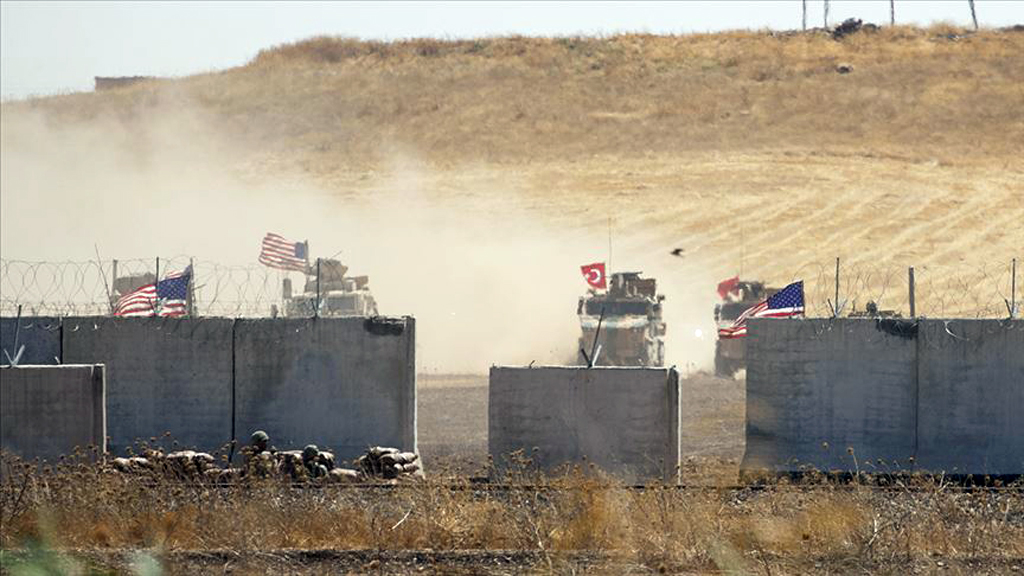
Turkish incursion into northeastern Syria imminent
Tensions between Turkey and the United States are re-escalating. Washington is inclined to delay the Aug. 7 agreement on the creation of a safe zone in northeastern Syria. In other words, U.S. Central Command (CENTCOM) is effectively ignoring U.S. President Donald Trump's pledge to establish a 20-mile safe zone and seeks to stall the process – as it did in Manbij.
Share
Tensions between Turkey and the United States are re-escalating. Washington is inclined to delay the Aug. 7 agreement on the creation of a safe zone in northeastern Syria. In other words, U.S. Central Command (CENTCOM) is effectively ignoring U.S. President Donald Trump's pledge to establish a 20-mile safe zone and seeks to stall the process – as it did in Manbij. At the same time, the U.S. continues to deliver weapons to the People's Protection Units (YPG), the PKK terrorist organization's Syrian affiliate, ignoring Turkey's repeated warnings. The Pentagon's statements — about the security mechanism's successful implementation, the YPG's removal of fortifications and joint air patrols — mean very little to the Turks. More and more people seem to believe that Washington is merely using the agreement to buy time.
In his Oct. 1 address to the Turkish Parliament, President Recep Tayyip Erdoğan said that the country "cannot wait another day" – suggesting that the Turkish incursion was imminent. To the keen observer, Erdoğan's most recent remarks are notably similar to what he said just before Operation Olive Branch. Unfortunately, a phone call between Turkish and U.S. defense ministers did not lead to de-escalation.
Washington is busy with an impeachment inquiry into President Trump, but it cannot ignore that the Turks have run out of patience. Having completed their preparations, top officials in Ankara are having serious discussions about giving the green light to a unilateral incursion into Syria. Turkey is trying to choose between a limited and an all-out military campaign. Unless Washington takes a meaningful step soon, the operation is expected to kick off very soon. The exact timeline, however, remains the decision of the Turkish president.
The Americans must understand the following: the Turkish public is behind an incursion into northeastern Syria. The operation's objectives are not limited to defeating YPG anymore. The fate of Syrian refugees, too, is associated with the incursion.
When it comes to Syrian refugees, there are no alternatives to President Erdoğan's proposal on the table. The Turkish people are behind his plan to resettle 1 million to 2 million refugees in the safe zone – which Erdoğan outlined in his address to the United Nations General Assembly.
The Erdoğan plan brings together two popular ideas: the need to neutralize the threat of PKK/YPG terrorism at Turkey's doorstep, and the repatriation of Syrian refugees. In other words, the Turkish president can hit two birds with one stone thanks to the proposed safe zone. The alignment of those two goals justifies an incursion into northeastern Syria, while making the opposition unable to make populist statements about refugees.
Recent statements by Kemal Kılıçdaroğlu, the chairman of the Republican People's Party (CHP), about "avoiding the Middle Eastern quagmire" and Turkey "paying the price" for "rushing to the fire next door with a barrel of gas" are out of touch with reality, and ultimately nothing more than a complaint. In the face of Erdoğan's strong arguments, the main opposition's rhetoric will fizzle out.
Having hosted an international conference on Syria without mentioning the YPG in its final communique, the CHP and its chairman can expect to encounter more and more public pressure in coming days. The main opposition party remains under fire for collaborating with the Peoples' Democratic Party (HDP) even though months have passed since the election. Under the circumstances, the CHP wouldn't dare to oppose a military campaign against YPG militants – with the added benefit of resettling Syrian refugees.
As the Good Party (İP) issued a stern warning to the CHP, saying that it would leave the Nation Alliance if the HDP joined the group of opposition parties, the Nationalist Movement Party (MHP) Chairman Devlet Bahçeli, currently taking bed rest, doubled down. He argued that the CHP was cooperating with terrorists, enabling the courts to investigate Kılıçdaroğlu's activities and the Parliament to lift the CHP chairman's immunity. An obvious critique of the CHP's political legitimacy, Bahçeli's remarks highlight the main opposition party's relations with HDP. It is a certainty that the MHP chairman's statement will start a political war of words and keep the gossip machine churning.
I had been saying that tensions between Turkey's political parties were bound to escalate, but I must admit that I did not expect it to happen so quickly.
[Daily Sabah, 7 October 2019]
Tags »
Related Articles






